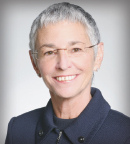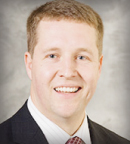Although most oncology program directors and associate or assistant program directors consider themselves clinician-educators, they receive little to no formal medical education training to nurture trainees into clinician-educator careers and do not have a clinician-educator track for their fellows, according to the results of an ASCO survey.1 The survey asked participants about their current career and their perceptions about a career as a clinician-educator, including their top perceived barriers and enablers to a clinician-educator career in oncology. (See sidebar “Top Perceived Barriers and Enablers to a Clinician-Educator Career in Oncology”below.)
GUEST EDITOR

Jamie H. Von Roenn, MD, FASCO
Education in Oncology focuses on faculty development, medical education curricula, fellowship training, and communication skills. The column is guest edited by Jamie H. Von Roenn, MD, FASCO. Dr. Von Roenn is ASCO’s Vice President of Education, Science, and Professional Development.
The survey, which was reviewed by experts in oncology education and approved by ASCO’s Education Council, was completed by 88 of 297 ASCO program directors and associate or assistant program directors. The results showed that 80% of respondents perceived clinician-educator as a viable career track; 55% said they had a clinician-educator track available to faculty at their institution; and 82% considered themselves clinician-educators. However, 67% reported having no formal medical education training for their trainees, and the majority, 76%, did not have a clinician-educator track for their fellows. And although medical education responsibilities are perceived to be common among graduates, 67% of respondents said that fewer than 10% of their trainees pursue medical education as a research focus. Compared with clinical, laboratory, or discovery research, 81% of respondents reported their fellows were less or significantly less prepared for a career in education research.
To improve these statistics, and to promote the clinician-educator career pathway in oncology, which is essential to all aspects of oncology care (including research, clinical care, health policy, prevention, and public awareness), ASCO is expanding its education programs with the development of the ASCO Medical Education Community of Practice (CoP): Teaching and Learning Scholarship, Collaboration, Community. The medical education goals of CoP are to provide a networking hub among medical educators within ASCO’s membership and mentoring and career development for established and aspiring educators within oncology; another goal is to provide a venue to share best practices, scholarship, and joint research within medical education, as well as interaction with ASCO’s current education groups, including the Education Council. ASCO plans to introduce the CoP program during two educational sessions at the 2022 ASCO Annual Meeting.

Sam J. Lubner, MD, FACP
To learn more about ASCO’s educational programming activities, The ASCO Post spoke with Sam J. Lubner, MD, FACP, Associate Professor, Division of Hematology, Medical Oncology and Palliative Care in the Department of Medicine at the University of Wisconsin School of Medicine and Public Health, Madison, and Chair-Elect of ASCO’s Education Council.
What Is a Clinician-Educator in Oncology?
First, please define the term clinician-educator.
In 2014, clinician-educator Jonathan Sherbino, MD, MEd, FRCPC, FAcadMEd DRCPSC (Clin Ed), and colleagues defined a clinician-educator as a clinician active in health professional practice who applies theory to education practice, engages in education scholarship, and serves as a consultant to other health professionals on education issues.2 I would simply expand that definition to include any oncologist in primary practice who cares for patients and also has a leadership role or a significant mentorship role in educating junior learners.
Promoting the Clinician-Educator Career Pathway in Oncology
Please talk about ASCO’s plans to expand its education programs to promote the clinician-educator career pathway in oncology.
We are realizing that we can rigorously apply the science of education to daily clinical practice through fellow and resident education, medical school curriculum design, and ASCO’s educational activities. Having providers who are excellent educational scholars is critical, but no standards have been established regarding the kinds of educational scholarship needed for
“Being a clinician-educator is not a side gig. Becoming a medical educator takes dedication, effort, and time, and it deserves both recognition and compensation.”— Sam J. Lubner, MD, FACP
Tweet this quote
academic advancement. For example, a review by Hoffman et al of medical schools’ promotion standards for educational excellence found that less than half the schools, 43%, had documented a well-defined education-related pathway for advancement in academic rank. And less than 10% have thoroughly embraced published recommendations for documenting and evaluating educational excellence.3
We are in the process of defining those standards of excellence. We want to make sure that being a clinician-educator is not a side gig. Becoming a medical educator takes dedication, effort, and time, and it deserves both recognition and compensation, as well as promotion as part of a career pathway.
Despite the critical role clinician-educators play in cancer care, we have heard from our Education Council members and ASCO training program directors that they receive little to no formal training in education. Many program directors say they do not even have the protected administrative time to implement education techniques and study the effects of those techniques on individual learners. ASCO wants to take the lead among the subspecialty societies to show that being on a clinician-educator career pathway has great value and to promote educational training in medical schools. ASCO also wants to emphasize the importance of developing the next generation of physicians and to ensure they have the time to pursue this career path.
Establishing Criteria for Academic Promotion
How is ASCO planning to support the promotion and professional development of educators?
The first step is to establish a set of criteria for academic promotions in this career track. Barriers to this career path include a lack of mentors, a lack of consensus regarding measures of excellence, insufficient grant funding, and limited training opportunities.
The clinician-educator pathway has not been specifically advocated for in oncology in the same way it is in other medical disciplines through faculty development programs, fellowships, mentorships, and establishing appropriate reward and advancement systems. We are looking at how we can develop a fair evaluation process for the promotion of educators.
For example, the Association of American Medical Colleges has developed a toolbox for evaluating educators, which contains explicit evidence-based criteria to evaluate faculty in each of the five domains of educator activity. Those domains include teaching, curriculum, advising/mentoring, educational leadership/administration, and learner assessment.4 We are examining how ASCO can adopt these best practices to assist promotion decision-makers evaluating medical school faculty educators.
Providing Financial Aid to Train Clinician-Educators
Is ASCO also planning to provide grants to support and promote the careers of clinician-educators?
Yes, it is. Beginning this year, a new endowed award will be given by Conquer Cancer® to a young oncologist or trainee for the best submitted abstract focused on innovations and research in medical education. The award will be presented during the ASCO Annual Meeting in June. We hope this award will inspire other ASCO members across the oncology spectrum to fund and support educational pilot projects to generate more data in the education space to maximize the quality of training for clinician-educators.
We are excited that ASCO is providing a venue to introduce the Community of Practice pilot program. This pilot will provide opportunities for networking and collaboration outside of the disease-focused content areas. One of the pilot communities will celebrate the application of evidence-based education to improve medical education across oncology and support the work of clinician-educators. The group will consider educational best practices during the heavily scientific Annual Meeting to highlight to members that celebrating applying the science of education to develop clinician-educators is just as important as celebrating clinical trial discoveries for treatment advances in cancer care.
Top Perceived Barriers and Enablers to a Clinician-Educator Career in Oncology
Barriers
- Unclear career path and/or lack of opportunity for future academic promotions
- Lack of jobs or career options focused on education
- Competing expectations to pursue an academic career in clinical, translational, or lab-based research
- Perceived difficulty in obtaining funding for medical education research
- Lower perceived importance relative to clinical or basic science research
- Perceived decreased prestige of an education-focused career
- Insufficient mentorship by senior faculty
Enablers
- Develop a toolkit for training program directors
- Provide guidance on a clinician-educator academic career pathway
- Offer more educational sessions at the ASCO Annual Meeting on medical education topics
- Develop a network of clinician-educators to promote collaboration and community of practice
- Sponsor mentored postdoctoral fellowships in medical education
- Create mentorship opportunities (virtually or in person) for existing clinician-educators
- Provide special sessions for fellows on careers in medical education
We are also looking at how educational best practices can be applied to realize health equity and increase diversity within training programs and in the oncology workforce. Some of the projects raised during past education sessions at the Annual Meeting include how to approach issues such as bias in education, bias in publications, and bias along the training pathway.
If we are going to accomplish the goal of being a more inclusive professional specialty, we must understand the scope of bias in oncology and apply good education scientific principles to teach our colleagues how to be better clinician-educators and mentor trainees and residents in a culturally competent and sensitive way.
DISCLOSURE: Dr. Lubner has received research funding from Servier, Lilly, and Bristol Myers Squib and consulting compensation from Elephas Bio Corporation.
REFERENCES
1. Giuliani ME, Bhadkamkar N, Lubner SJ, et al: The clinician educator career in oncology. 2021 ASCO Annual Meeting. Abstract 11022. Presented June 4, 2021.
2. Sherbino, Frank JR, Snell L: Defining the key roles and competencies of the clinician-educator of the 21st century: A national mixed-methods study. Acad Med 89:783-789, 2014.
3. Hoffman LA, Lufler RS, Brown KM, et al: A review of U.S. medical schools’ promotion standards for educational excellence. Teach Learn Med 32:184-193, 2020.
4. Gusic ME, Baldwin CD, Chandran L, et al: Evaluating educators using a novel toolbox: Applying rigorous criteria flexibly across institutions. Acad Med 89:1006-1011, 2014.

